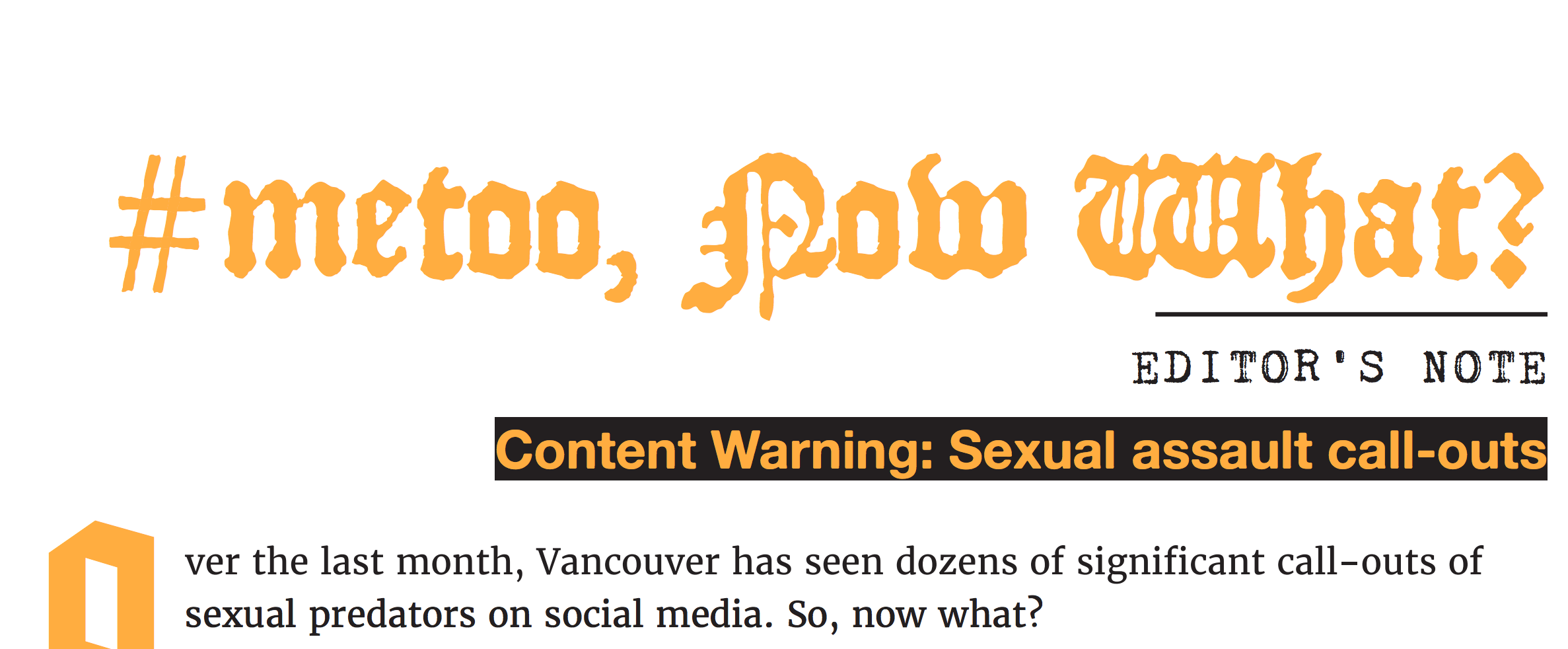Over the last month, Vancouver has seen dozens of significant call-outs of sexual predators on social media. So, now what?
I have researched some texts to help make sense of these call-outs, and provide suggestions for how to move forward. Including url links in an Editor’s Note in print seems terribly taboo, but the following websites are important:
***
“list of resources on rape and accountability” is a Google spreadsheet of zines, essays and resources lists compiled by Anya Kark, with the intention of making “community accountability and transformative justice work [sustainable].”
“Resources For Dealing With Conflict and Harm” is a list of resources for survivors of gender-based or race-based violence and their allies, with some excerpts from zines and essays. It is written by Nora Samaran, best known for a viral post titled “The Opposite of Rape Culture is Nurturance Culture” in February 2016.
I would also like to highlight a resources list for people who have been called out, and friends of people who have been called out. Although there are more resources for men named as predators, there are also links and suggested readings for women and trans who have been called out. It is compiled by Theo Slade, also known as Tolerated Identity or Activist Journeys.
***
While it is my personal belief that all gender-based violence stems from structures of oppression, mostly patriarchy, discussions of sexual assault, call-outs and accountability should not be gendered or geographic. To reduce local #metoo call-outs to “men are bad” or “Vancouver sucks” diminishes the experiences of survivors across the country, and limits our ability to engage in constructive conversations as a community that desperately needs healing.
This time is intense and necessary.
With that said, this issue also deals with some intense and necessary themes related to identity and belonging. Samantha Nock has submitted an essay about decolonial love and bodies; Lexi Mellish Mingo writes about Hogan’s Alley as it was, and as it aspires to become again; Blind Tiger Comedy carves a niche for women, trans and non-binary comics with WTF; CiTR / Discorder’s Indigenous Media Collective Coordinator, Autumn Schnell, reviews the new album by Mich Cota, a Montreal-based Two-Spirit artist; and Rachel Lau talks to Youth for Chinese Seniors about an intergenerational Chinatown for this month’s Transmission from PLOT.
As a final plea, I encourage you to be open to the articles you wouldn’t normally read, click the links that make you uncomfortable, and scroll the threads that name your friends. Share the emotional labour of your community without ego or righteousness. Have frank conversations about consent.
A+
BB
Suggested reading:
Sexual Assault and Accountability in the Music Scene
Call-outs with Montreal’s Catherine Colas
Good Night Out Vancouver: Location, Location, Location


